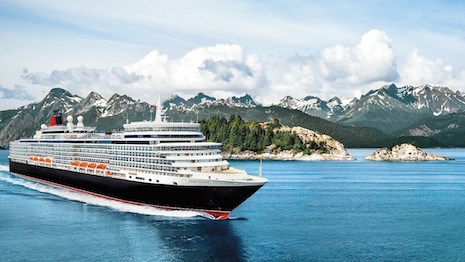 Chinese travelers continue to look for more unique experiences. Image credit: The Luxury Conversation
Chinese travelers continue to look for more unique experiences. Image credit: The Luxury Conversation
Even smaller destinations should prepare to see a significant number of Chinese travelers in the near future, as more adventurous generations continue to push their horizons.
During a webinar presented by Resonance Consultancy on Feb. 5, industry experts discussed the evolving interests of the Chinese traveler. Tourism is one of the fastest-growing industries, and more international travelers come out of China than any other country.
"There needs to be a recognition that hospitality is the same for everyone – to create a warm and welcoming destination," said Bruce A. Wright, vice president and principal at SB Architects.
The webinar was based on Resonance's Future of Chinese International Travel Report. Resonance Consultancy and China Luxury Advisors surveyed more than 3,000 mainland Chinese tourists who traveled internationally between March 2017 and March 2018.
Beyond China
According to Chris Fair, president of Resonance, the international industry is expected to see 8 percent growth between 2015 and 2020.
There will be 2 billion international travelers by 2030 – including an expected 200 million Chinese tourists.
Air travel has only become widely accessible in recent decades, opening the world in a new way in the latter half of the 20th century. Chinese society in particular has been more closed off than other cultures.
There are 65 million airplane trips during the Lunar New Year. Image credit: Priority Pass
Cultural contexts shape the experiences and priorities of travelers exploring outside of mainland China.
Mr. Fair cited China's rapid urbanization as a reason why many travelers may have lost touch with the natural world and seek out ways to connect with new environments while they travel.
Engaging with nature is a top travel priority for younger Chinese. Sixty-nine percent of millennials and 66 percent of Generation X respondents named enjoying nature as a travel activity they already enjoy.
For both demographics, the interest in nature is nearly on par with shopping, which has seen a decline in recent years.
More than half of millennials, 55 percent, named seeing the Northern Lights as their dream vacation.
Forty-one percent of millennials also listed visiting national parks, such as the Grand Canyon or Yellowstone, or a voyage on a luxury cruise ship as "dream vacations."
The U.S. state of Alaska is already hosting tens of thousands of Chinese tourists annually, the majority of which are motivated by experiencing the natural phenomena and seeing a new environment firsthand. The number of visitors from China in the region is only expected to grow.
Alaska is becoming a more popular destination among Chinese travelers. Image credit: Cunard
New air routes are impacting travel patterns as well.
Direct flights between Anchorage and Harbin in northeast China are expected to begin in 2019. The eight-hour flight dramatically cuts travel time from Asia, since travelers currently have to fly into other hubs such as Seattle before turning back north towards Alaska.
Travel trends
With the largest annual human migration coinciding with Chinese New Year, hospitality brands need to brace for the millions traveling during the 40-day festival period.
Luxury travel brands including Mandarin Oriental and Four Seasons offered unique experiences to mark the Year of the Pig. The holiday represents an opportunity for hospitality groups to appeal to both Chinese travelers and other affluents who have a strong desire to experience more cultural events.
Since culinary exploration is more popular than ever among affluent travelers, many hoteliers are capitalizing on Lunar New Year as chance to experiment with Chinese cuisine (see story).
Leveraging mobile technology is also crucial for destinations that want to attract Chinese tourists, especially millennials.
According to Resonance's findings, 80 percent of millennial Chinese travelers engage with official WeChat accounts of destinations they visit on an occasional or daily basis.
Mobile payment platforms, including WeChat Pay and Alipay, are commonplace in China and are becoming more expected by tourists going abroad. Ninety-one percent of respondents claim that they would be more willing to purchase goods or services if more overseas vendors supported Chinese mobile pay platforms (see story).
"Luxury brands are always in play in China," said SB Architects' Mr. Wright. "Having a strong and clear message is important."

